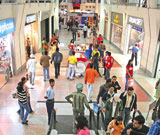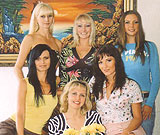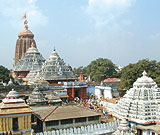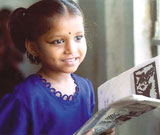|
Indians most optimistic consumers
|
Indians best husbands for Russian women
|
|

|

|
|
Indians are the world’s most optimistic consumers, followed by Norwegians and Danes, while Japanese remain cautious despite their recovering economy, a survey by market researcher AC Nielsen shows.
India set the highest level ever registered in the AC Nielsen Global Consumer Confidence Index with a reading of 137, although Norway was not far behind on 134 and Denmark scored 129. Indians, benefiting from a booming economy, have topped the twice-yearly survey since it was introduced in early 2005.
In contrast, consumers in Asia’s other surging economy, China, scored a much lower 105 although that was above the global average reading of 99. The index measures consumer confidence for the coming six months and is based on a survey covering 46 markets around the world. The latest survey, taken in late October and early November, polled more than 25,000 Internet users.
|
Among foreigners, Indians make the best husbands for Russian women as they are “more open” and share an emotional relationship with family, says country’s leading feminist intellectual Maria Arbatova.
“In my view, out of all the foreigners, Indian men are the best husbands for Russian women since they are brought up in a different way,” famous Russian playwright and poetess Arbatova says.
“The western culture worships the superman and for an Indian male it is not a shame to cry. They are more emotional and have a more open and emotional relationship with the family,” she said in an interview to Russian Agrarian Gazeta. Arbatova, a living symbol of feminist movement of post-Communist Russia, had married twice and is presently living with an Indian. Recently she has published a book The Taste of India.
She became a household name in 1990s in Russia with her feminist TV Programme ‘I Can Do It Myself’. Since 1996, she heads the club of ‘Women Meddling in Politics’ to seek a greater role for the Russian women in the country’s politics.
|
| |
|
|
|

|
|
Dalits enter Jagannath temple in Orissa
|
10 million girls killed over 20 years
|
|

|

|
On December 14, four Dalits entered the 300-year-old Jagannath temple in Orissa’s Keredagada village, defying opposition to their entry by upper castes for over a year.
The four persons, all residents of Keredagada in Kendrapara district, came to the shrine separately, congregated there and entered the temple together, watched by a police unit deployed near the temple.
The incident marked the end of a tradition continuing for generations in the area. The Dalits faced no resistance as they entered the temple. They went round the shrine and offered flowers near the bamboo barrier erected for all devotees, where they accepted ‘prasad’ from the priest.
Soon after, a group of Dalit women arrived at the shrine but could not worship as it was temporarily closed for the ‘pahuda’ ritual, when the shrine’s gates are closed.
The attempts by Dalits to enter the temple had snowballed into a major controversy in the state and they received a shot in the arm when the Orissa High Court ruled on December 5 that they could enter any Hindu temple.
|
Ten million girls have been killed by their parents in India in the past 20 years, either before they were born or immediately after, Minister for Women and Child Development Renuka Chowdhury said.
A UNICEF report released this week said 7,000 fewer girls are born in the country every day than the global average would suggest, largely because female foetuses are aborted after sex determination tests but also through murder of new borns.
“These are shocking figures and we are in a national crisis if you ask me,” Chowdhury said. Girls are seen as liabilities by many Indians, especially because of the banned but rampant practice of dowry, where the bride’s parents pay cash and goods to the groom’s family.
According to the 2001 census, the national sex ratio was 933 girls to 1,000 boys, while in the worst-affected northern state of Punjab, it was 798 girls to 1,000 boys. The ratio has fallen since 1991, due to the availability of ultrasound sex-determination tests.
|
|
|
|
|